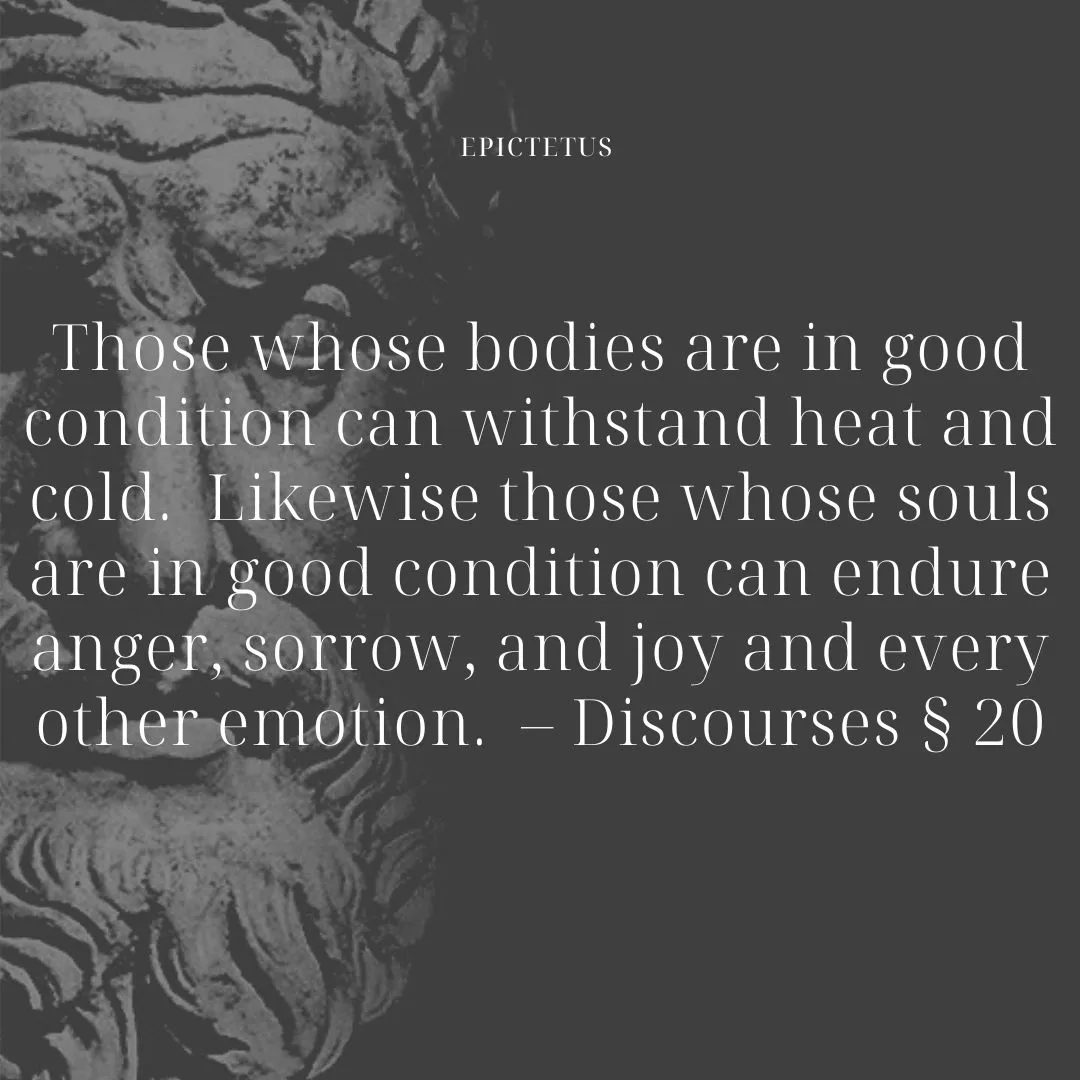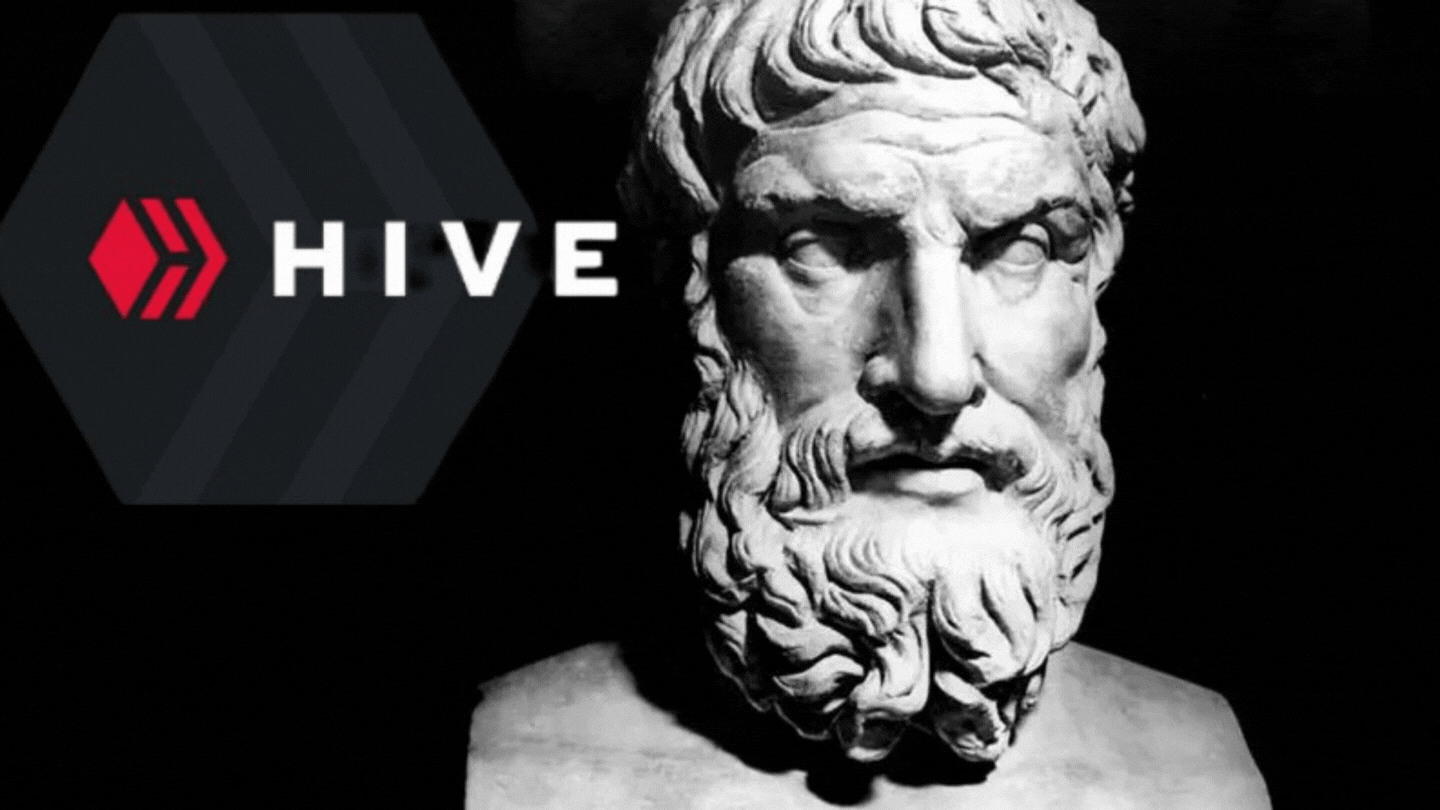
Are you happy? Is the pursuit of happiness an end in itself? Will I be happy if others love, admire or fear me? Will I be happy if I have a lot of money, power or beauty?
Thoughts we've all had. A good guide, to get out of the confusion that they may cause us, are the works of Epictetus. Works, which have echoed through the ages, shaping the thoughts of a host of intellectual giants, from Roman Emperor Marcus Aurelius to Descartes, Spinoza, Rousseau, Nietzsche, Marx, even the Founding Fathers of the United States.
Who was Epictetus?
Epictetus (50AD -138AD) was a Stoic greek philosopher best known for his works The Enchiridion (the handbook) and his Discourses.
Both foundational works in Stoic philosophy and both thought to have been written down from his student Arrianos (Flavius Arrianus), who collected his discourses, of which only the first four books survive.
Stoicism is the belief that the individual is entirely responsible for his or her interpretations of circumstances and that all life is natural and normal despite one's impressions. For the Stoics, philosophy was synonymous with life. No one engaged in philosophy as a sole theoretical goal, but simply trying to learn how to live their lives better..
Epictetus was born as the child of slaves and is said to have been born in Hierapolis, Phrygia (today is the city of Izmit,in Turkey). He managed to gained his freedom by his master Epaphroditus, who was also a slave and freed by Nero.
Epictetus was a victim of Epaphroditus. The second put his foot on a machine and squeezed it, to make him lose his stoicism and cry out. "You'll break my leg," Epictetus warned him, but Epaphroditus continued to squeeze until the damage was done. "Didn't I tell you how you were going to break my leg?"
Epaphroditus, recognizing his slave's intellectual abilities, recommended that the young Epictetus study with the great Stoic teacher C. Musonius Rufus. Apart from Epictetus' great admirer of Rufus and Rufus was greatly impressed by Epictetus's keen mind and trained him well in the discipline of Stoic philosophy.
He lived a life of great simplicity, with few possessions. He lived alone for a long time,but in his old age, he adopted a friend's child who otherwise would have been left to die
The basis of his work
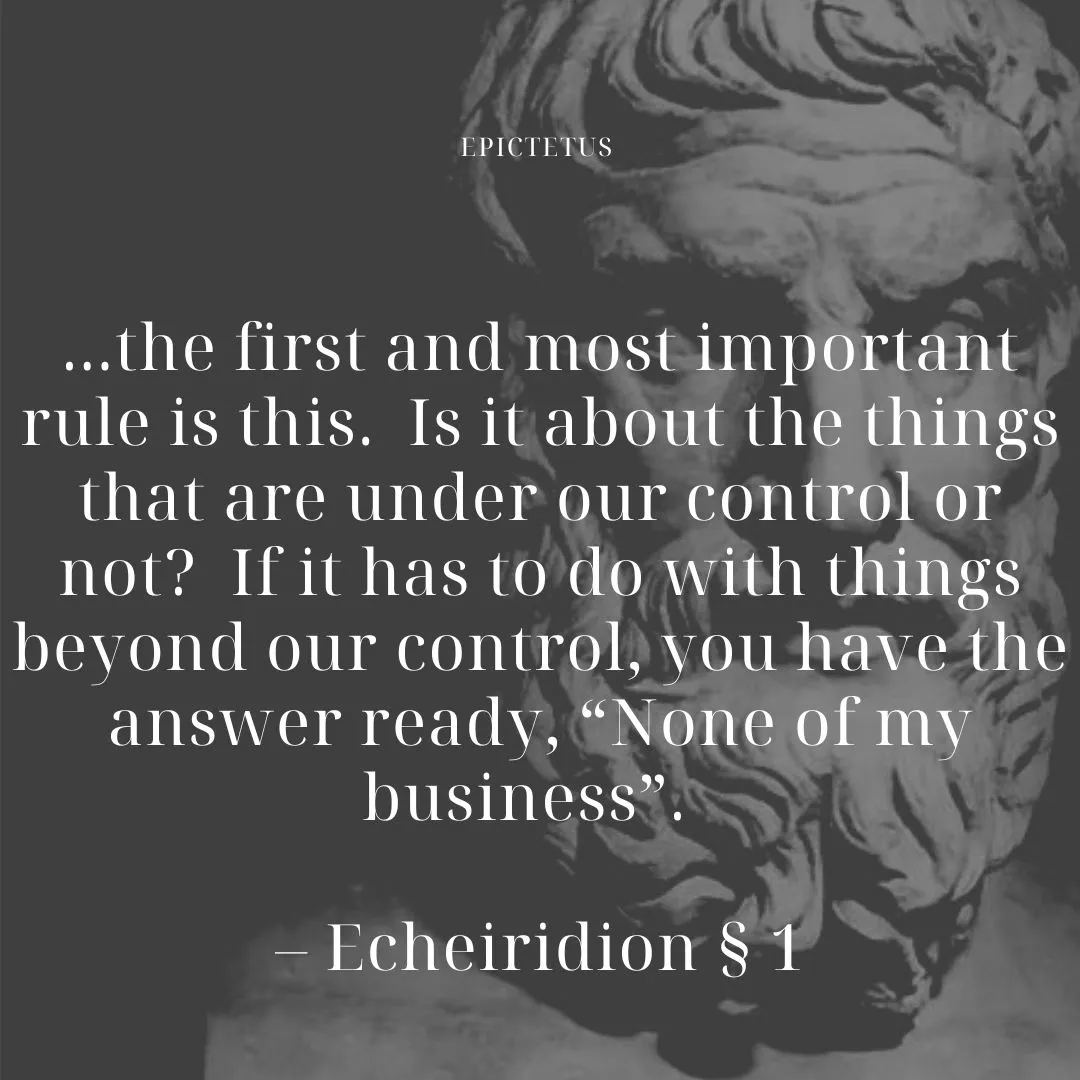
Epictetus' prescription for the good life centered on three themes:
- becoming master of one's desires,
- performing one's duties,
- and learning to think clearly about oneself and about one's relations with the wider human society.
Our approach to the above themes should be done keeping in mind that in our lives, some things are under our control, while others are not.
Under our control is:
- perception (idea),
- choice, desire
- and aversion, and in short, all that is our work.
Νot under our power is:
- our body
- our property
- our fame
- our offices and in short, everything that is not our work.
Moreover, the things in our power are by nature free, unhindered, unobstructed; while the things not in our power are weak, subject to hindrance, servile, and not ours.
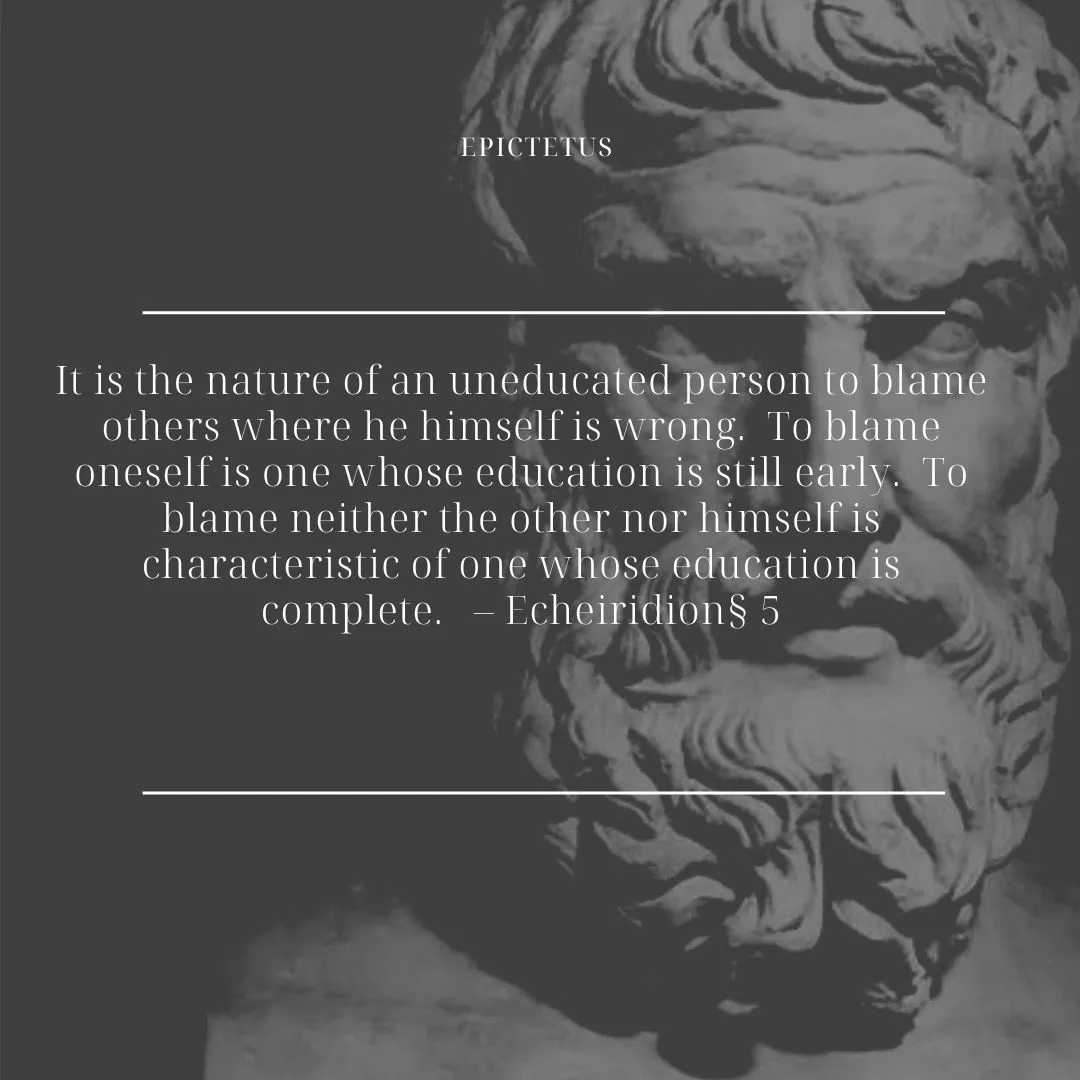
The focus of Epictetus was on the individual's responsibility to live the best life possible. He insisted that human beings do have freedom of choice in all matters, even though that choice may be limited by the function of logos.
This logos was an eternal force moving in all things and all people, which created and guided the workings of the universe and which has always existed. More simply, we could render the logos the meaning often given as God.
Logos works both in individuals and in the universe as a whole. In individuals is the faculty of reason. On a cosmic level it is the logical principle that governs the organization of the universe. In this sense it is synonymous with "nature", "Providence", "Harmony" or "God". connection of the concept Logos and God also exists in the Gospel of John, where the Stoic influence is also seen.
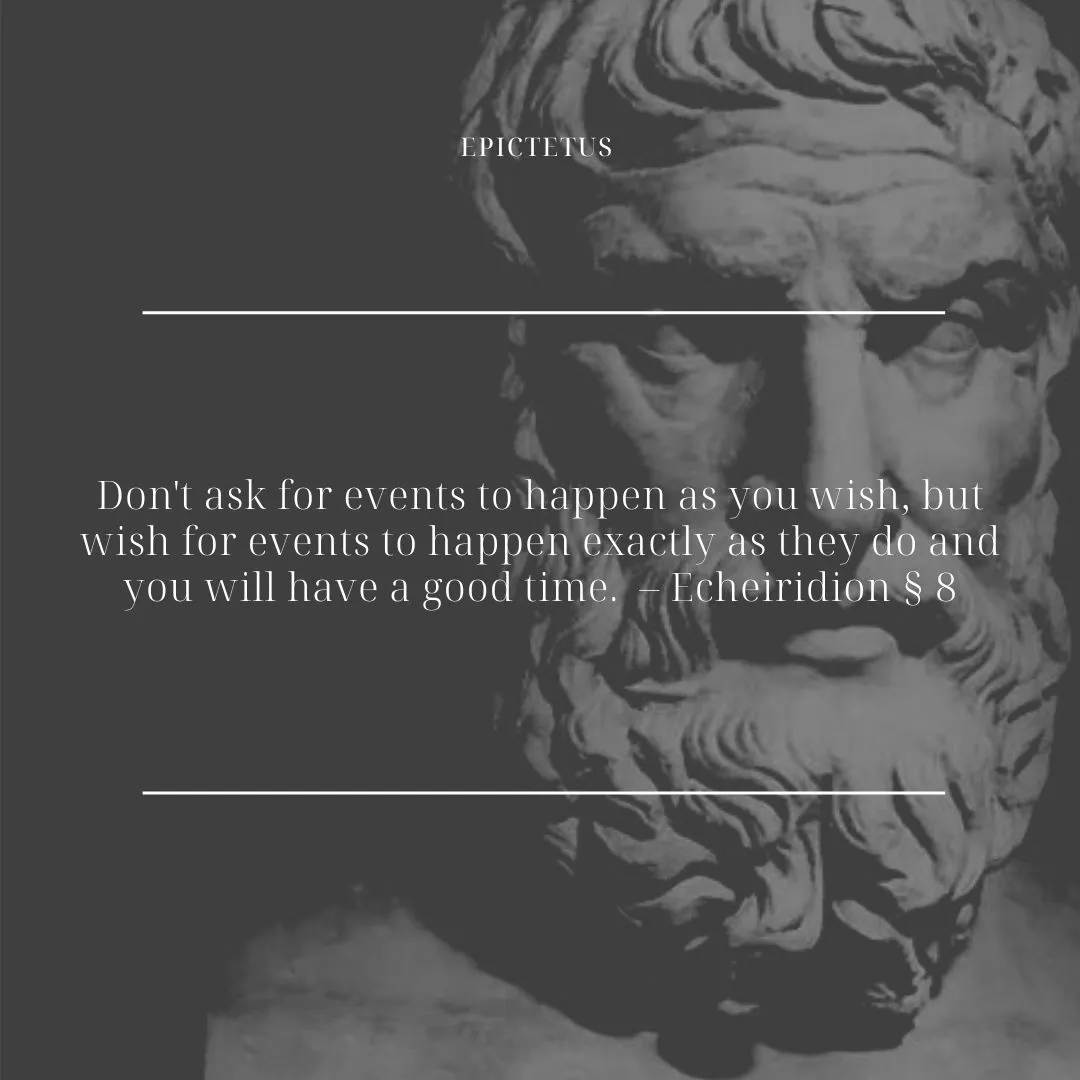
As the Enchiridion puts it, “Men are troubled not by things that happen, but by opinions about things: for example, death is nothing terrible, for if it were so it would seem to Socrates. for the view of death, that it is terrible, is the terrible thing.
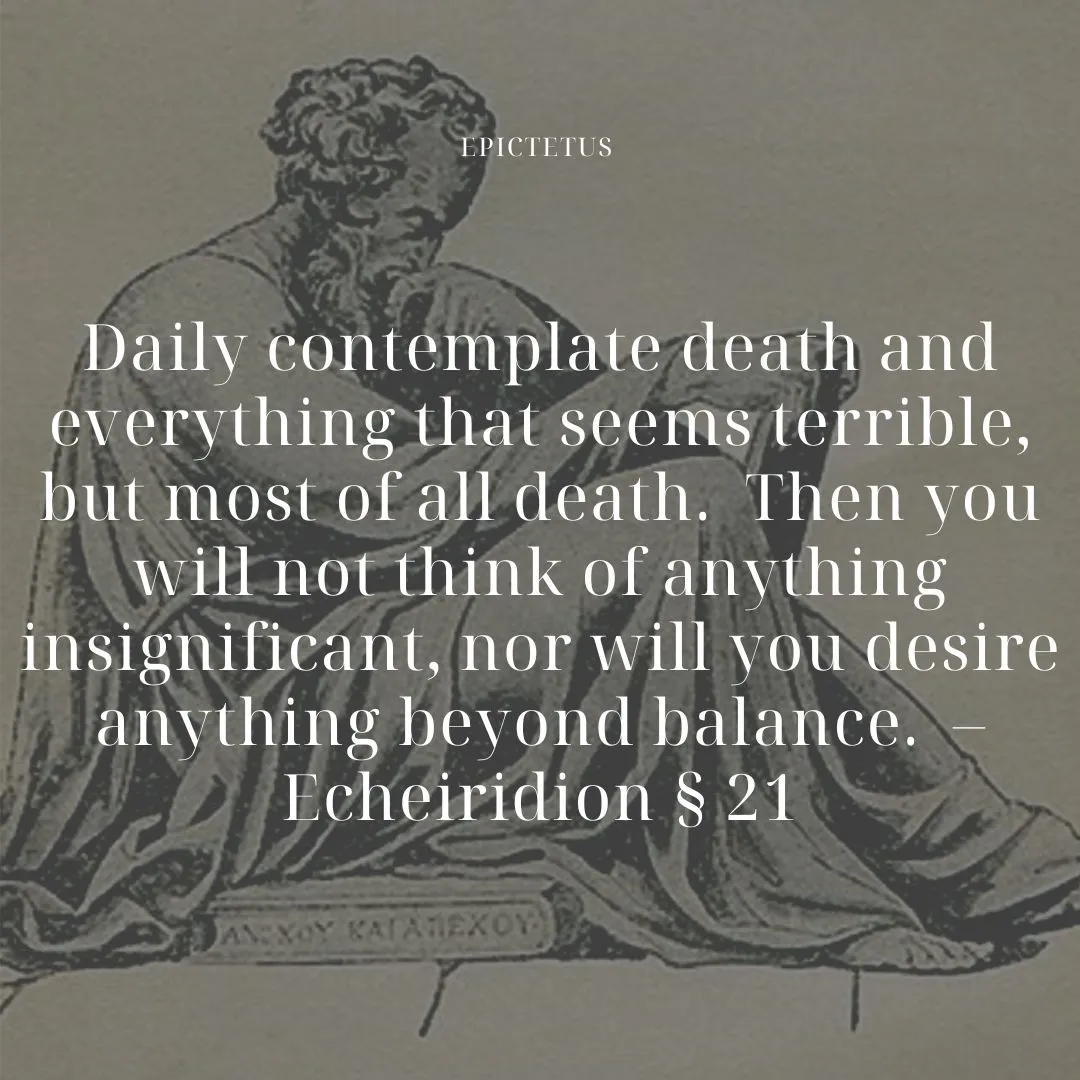
How one chooses to interpret external circumstances, not the circumstances themselves, leads one to enjoy a good life or suffer a bad one. The immense power and responsibility of personal choice and free will was at the heart of Epictetus' stoicism, while at the same time recognizing that there was much in life that was simply beyond his control.
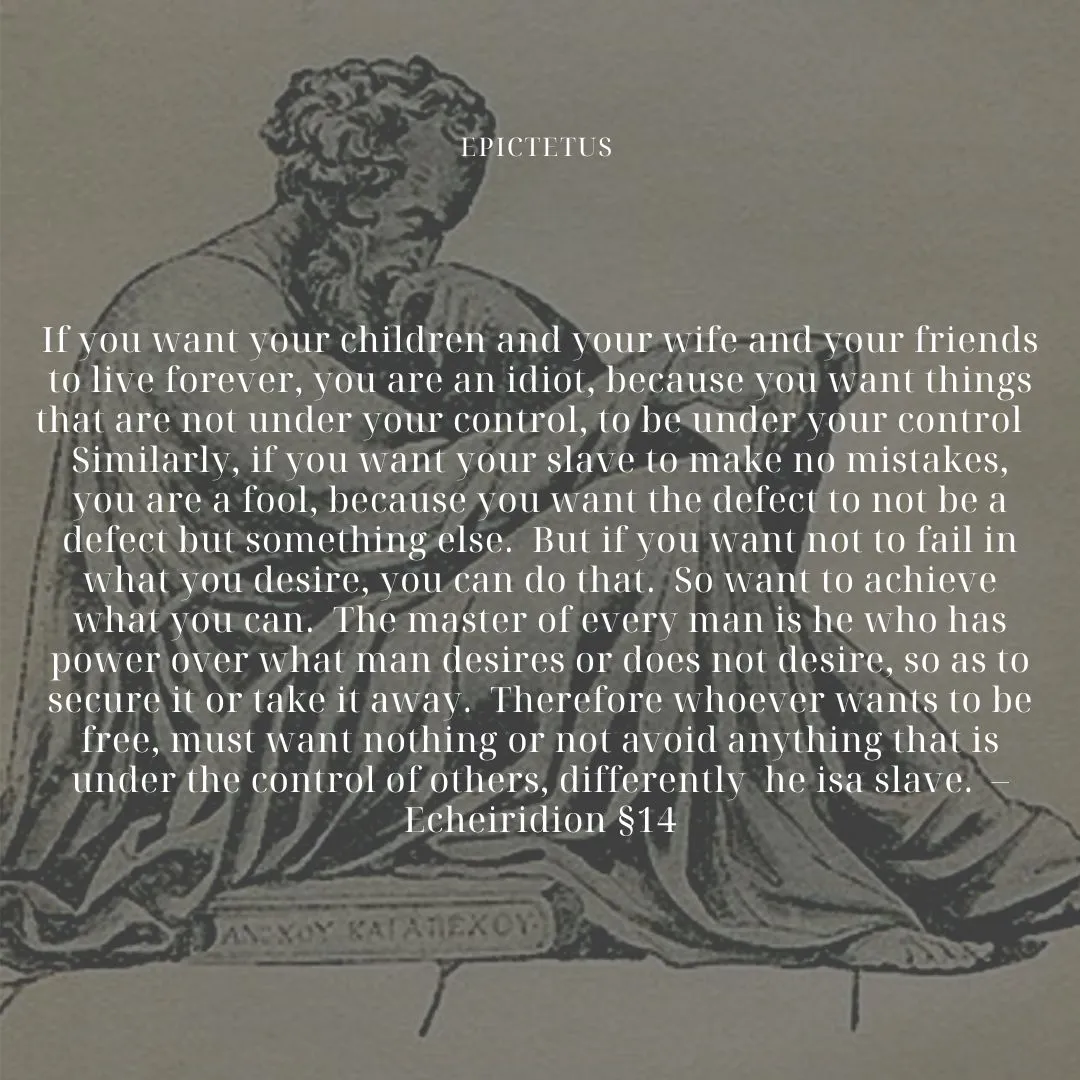
Epictetus insisted that although life may be subject to constant change, human beings are ultimately responsible for how they interpret and respond to these changes.

By accepting responsibility for the way one sees the world and how that view affects one's behavior, one frees oneself from slavery to external circumstances to become master of one's own life.
To create this post, I used information and material from the following pages!
https://www.worldhistory.org/Epictetus/
https://terrapapers.com/epiktitou-peri-kalis-zois/
I tried to make my own images with some quotes from the work of Epictetus, I hope I succeeded! What did you think of Epictetus's approach?
